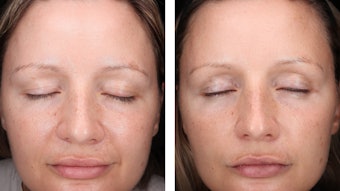
Symrise has re-assessed its established deodorant active SymDeo B125 (INCI: 2-Methyl 5-Cyclohexylpentano) to determine whether its mechanism of action could negatively affect the axillary microbiome; results confirmed its safety.
According to the company, while the active's long-term efficacy has been known for years, new research revealed key advantages. Specifically, in contrast to the conventional antimicrobial active triclosan, SymDeo B125 has no negative impact on the axillary microbiome. This effective and readily biodegradable deodorant active, launched ten years ago, is used in typical underarm cosmetic products and has also proven effective in foot care.
The new data supports claims that the deodorant active is microbiome-friendly and does not disrupt the sensitive underarm biota notably. These findings on the influence of a deodorant active on the human axillary microbiome are reportedly the first in the industry, underlining Symrise's pioneer positioning in the field of modern micro-protection.
“Globally, we are observing a growing interest in exploring the impact of personal care products on healthy skin,” said Florian Genrich, Ph.D., senior global product manager for micro protection, in the Cosmetic Ingredients division at Symrise. “Consequently, cosmetic manufacturers are facing continuously increasing expectations from the consumer side, which requires the industry to keep up with state-of-the-art technologies."
He added, "As a manufacturer of cosmetic ingredients, we continuously conduct intensive research on our ingredients and explore new methods, such as in the field of skin microbiome analysis. We are proud to deliver our customers additional benefits also within our existing and versatile product portfolio.”
For more information, contact Symrise.










